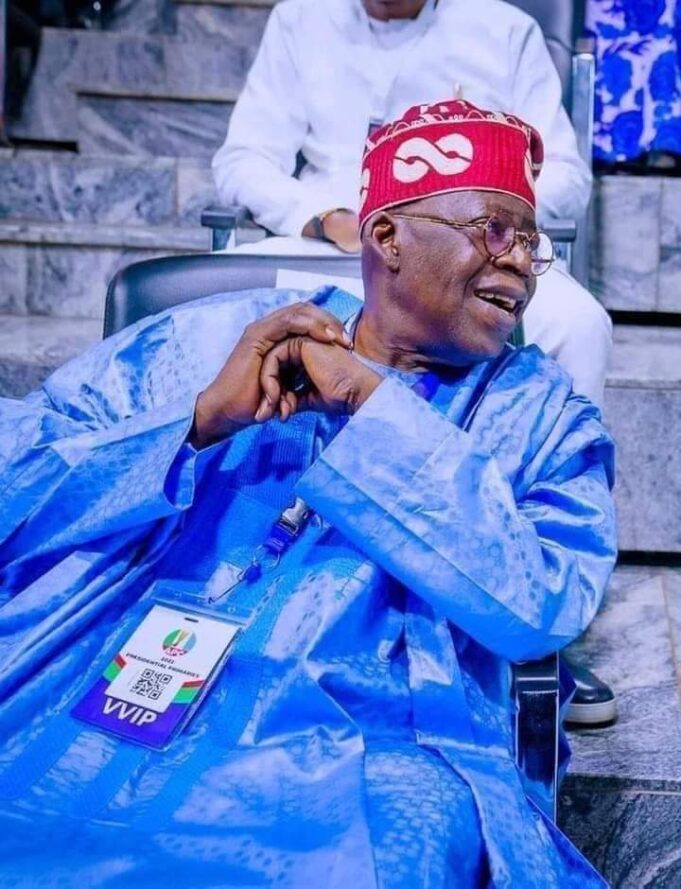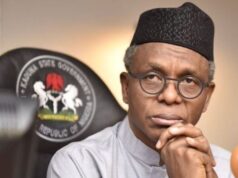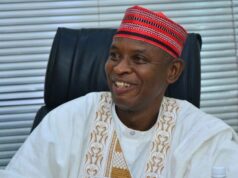By Oludayo Tade
The National Association of Seadogs (Pyrates confraternity) which originated from the University College, Ibadan in 1952 with membership across the globe is a humanitarian and charitable organization with a creed to fight all social ills and conformist degradation. They are against moribund convention and tribalism but stand for humanistic ideals, comradeship and chivalry. The Pyrates Confraternity held their 46th Annual General Meeting (AGM) in Ikeja Lagos between August 4 and 6, 2022. It was attended by over 2000 members from different ethno-religious backgrounds and from different parts of the globe. The AGM which would have gone unnoticed however attracted reactions from people concerning its street composed, easy-to-dance èmilókàn (it is my turn) song. With a pattern of foot sounds hitting the ground which aligned with their body movements, I heard faintly a song from the background. As it gained more energy and acceptance, the old song on their lips faded off as the rave of the moment, èmilókàn single birthed and in one format, the Pyrates sang: èmilókàn, èmilókàn. Baba Wey no well, He dey shout èmilókàn, Head dey shake, legs dey shake, Baba wey no well, he dey shout èmilókàn.
Sociological analysis of music empowers us to appreciate how people communicate their lived experiences through lyrical compositions and renditions. Songs can be therapeutic, entertaining, warning, commending and condemning. It can also signpost dangerous turn of event, makes suggestions and deployed as a social control. While it is source of livelihood for some, it is spiritual for others. Politicians pay musicians to entertain their supporters. They also use songs to abuse or ridicule opponents. Churches do praise and worship to invite the supreme being into their midst. There are songs for every season to symbolize significant events such as child birth and death, promotion, birthday, housewarming, protest, war, spiritual deliverance among others. Songs convey meanings capable of inspiring social change. It is within this line of thought that I situate èmilókàn song. Rather than condemn the Pyrates for this innovative advocacy and conscientization as mocking a political personality that was not named, I elevate the discourse beyond political hijacking of a song capable of inspiring deep thinking. I do this by interrogating the consequences of ‘shaking hands’ and ‘legs’ to the central coordination of the human body and by extension, what constitutes the ‘shaking heads, hands’ and ‘legs’ in the present composition of Nigeria.
It was the United States of American Sociologist, C Wright Mills in 1959 who popularised sociological imagination, an approach which brings people together to bring about change by transforming personal problems into public issues. By doing sociological imagination, the sociologist assumes the role of change agent which late renowned Nigerian Sociologist, Professor Akinsola Akiwowo calls Ifogbontayese (Using knowledge to change the world). Deploying sociological imagination, therefore, will empower us to assess the truth of common sense, help us assess the opportunities and constraints, as well as empower us to become active participants on public issues such as presented to us by the Pyrates through their ‘single album’, èmilókàn.
DAKUKU PETERSIDE: Why we may elect the wrong leaders in 2023
Age and health are implicated in the èmilókàn song. Age is an important sociological variable for critical engagement because with age comes expectations and deliverables. Demographers will not joke with such variable. Thus, if Nigeria is seen in terms of her age from the time of amalgamation of northern and southern protectorates for the administrative convenience of colonial rulers, then Nigeria would be 108years and if it is from independence in 1960, Nigeria would be 62 years of togetherness of ‘northern heads, hands and legs’ and ‘southern heads, hands and legs’ holding the body: Nigeria. Through sociological lens, I see the Pyrates asking questions about the sense of entitlements of the present constituents of Nigeria and how widely dispersed the country has become from the bonding of beginning. This is true when one views this within the context of who is next (ta ni o kan) to become president. Note that in this frame, Nigeria is the body, ethnic groups are the legs and in their hands are religious contours which threaten its unity. Thus, it is important to discuss the basis of these ‘shaking hands’ and ‘legs’ if the old man (Nigeria) is to survive.
Health is dysfunctional when the head of the ‘old man’ is shaking alongside his hands and legs and this means that attention must be paid to the parts which make up the whole. An old definition of World Health Organisation (1948) views health as “a state of complete mental, physical, and social well-being and not merely the absence of infirmity” and this implies that those limiting ‘head dey shake, hand dey shake’ to medical conditioning of the human body failed to appreciate the enormity of issues embedded in the health of a nation or a man. It follows therefore that Nigeria as the ‘Baba’ suffers from not only mental, physical and social well-being but also from varying diseases and infirmities. A simple test of the blood pressure among a cross section of Nigerians will reveal to you how many people are managing high blood pressure and how economic downturn has pressured many breadwinners into depression. What can physical insecurity not bring to the health of a nation? Those at home will have their hearts in their mouths until their relatives who travelled returned because of banditry and kidnapping. Indeed, the ‘head’ and ‘legs’ of Nigeria is shaking capable of causing system shutdown. This can be seen in the agitations for restructuring, secession, right to self-preservation and self-determination.
No one says èmilókàn to bad things. Who will say it is his/her turn to be kidnapped, abducted, killed, experience lack, sickness, unemployment, poverty, or experience the consequences that corruption and bad leadership unleashes on Nigeria and Nigerians? Thus, èmilókàn is used to appropriate to oneself good things of life. In Nigeria, its political usage came from the presidential candidate of the All-Progressives Congress (APC) Bola Tinubu, who thundered in Ogun state that it was the turn of Yoruba (awa lo kan) and among the Yorubas, èmilókàn (it is my turn). From ethnic units claiming it is their turn, to individual claiming it is His turn is the neglected vital issue of health of aspirants and how it can impact the health of the ‘hands and legs’ of the nation. The Pyrates reminded Nigerians who may have forgotten the same narrative of ‘I am fit’, ‘Aso rock is not where they break rock’ which was sold to Nigerians pre-2015 elections before candidate Muhammadu Buhari won the elections. With retrospection, the first term of president Buhari was troubled with travelling to attend to his health in the UK at the expense of the health of the nation. The health of a country’s leader will impact the health of the nation and that is why this must be elevated in public discourse as personal trouble can impede the progress of the nation. Till date, the incumbent President has not constructed a world class health facility that can treat him in Daura or Abuja. I recall that we were all made to pray for the president to get well. Was the country moving at the right energy and space in his absence? The consequences of intended actions steer us in the face again. Although, the candidate of the All Progressives Congress has been in the news concerning the true state of his health, it is important to have conversation around this as campaign season begins. To what extent have APC’s Bola Tinubu, Labour Party’s Peter Obi, Peoples Democratic Party’s Atiku Abubakar and New Nigeria People’s Party Rabiu Kwankwanso showed that they are proud users of the health facilities they bequeathed to their peoples during and after they left office? The Pyrates èmilókàn inspired me as a sociologist to challenge the society to begin to see how personal troubles can become public issue and affect the lives of the majority. We need to look at where we are coming from, examine our present situation and decide a future for ourselves. Infact, it was Professor Wole Soyinka in his 1991 published paper entitled “Africa’s Culture Producers” who defined culture “as a bridge to our past and a guide to the future”. In the context of the èmilókàn song, the Pyrates confraternity stimulate Nigerians to see the bigger picture similar to what Peter Berger calls “seeing the general from the particular” and the consequences of acting in such a way that the ‘head and legs’ of Nigeria will not only shake but the system may collapse or come out stronger depending on our decisions. Otherwise, we would have moved from èmilókàn (it is my turn) to eni kan lo mo (only those who wear the shoes know where it pinches) as Nigerians are currently lamenting.
*Dr Tade, a sociologist wrote via dotad2003@yahoo.com
- Ojudu’s Open Letter is a weapon of malice - March 25, 2025
- Imagine Rivers State without a State of Emergency - March 25, 2025
- INTIMATE AFFAIRS: Accidental pregnancies, By FUNKE EGBEMODE - March 22, 2025









